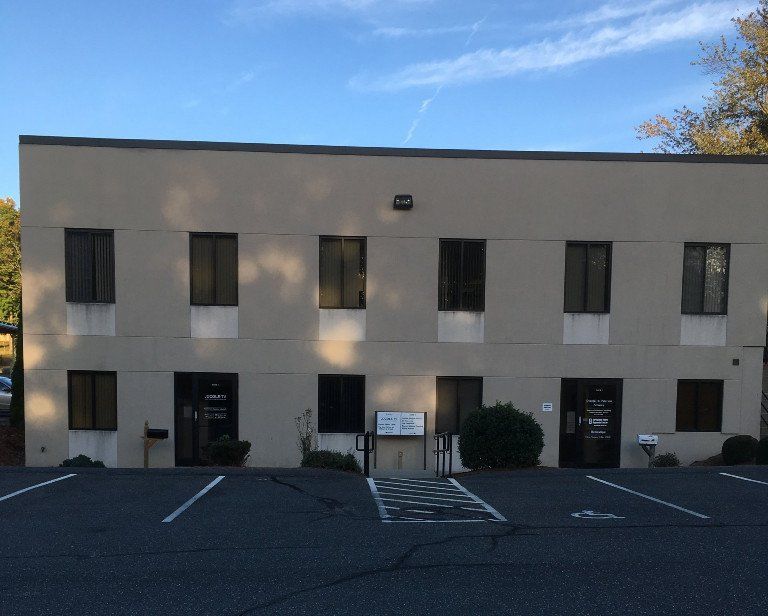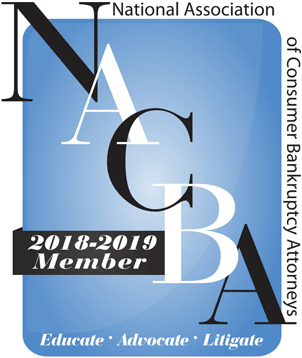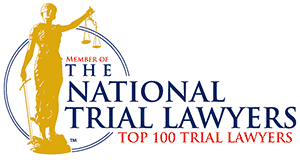Bankruptcy Law
Skilled Bankruptcy Attorney in Springfield, MA
Trust attorney William J. O'Neil, a skilled bankruptcy attorney in Springfield Massachusetts . Attorney O'Neil represents clients filing for protection under the United States Bankruptcy Code in both Chapter 7 and Chapter 13 cases.
Why File For Bankruptcy?
Frivolous Spending Habits Is Not the Primary Reason
A common myth is that those filing for bankruptcy are careless with money and lives beyond their means which leads them into debt. That is usually not the case. Surveys point to three separate reasons apart from careless spending:
Medical Debt From A Catastrophic Illness
A family may be getting by when cancer or other disease hits a family member or a car accident or an emergency operation suddenly creates substantial medical debt they could never anticipate. In recent years, people have seen their insurance deductibles raise to the point that the coverage they chose doesn't include the condition they're in and suddenly, they've got a stack of medical bills they can't pay.Job Loss
Some people will need re-training to get another job or have to relocate, either of which can deplete emergency funds, if any are on hand. They also could have recently purchased a home, car or have children starting college, and can't handle payments on those bills until they get another job. Loss of health insurance along with the job, could mean an even deeper hole to fill. Most times, creditors don't want hear about a person's troubles and simply want payment as soon as possible.Divorce
Financial problems often cause a marriage to dissolve. There most likely will be financial difficulties for both spouses after a divorce. It's difficult for many people to maintain the same lifestyle when they have only half the income that was available while married. Debts which could be paid in a marriage – such as credit card debt, mortgage payments, and car loan payments – may be impossible to keep current when the couple splits up. Additional bills may arise as a result of alimony or child support obligations and attorney fees for court proceedings.
Bankruptcy Basics
In the United States, Bankruptcy is designed to benefit both creditors and debtors by making sure that debtors obtain relief from the debts they cannot pay and that creditors are paid from assets the debtor does not need to provide for basic needs. Those assets are considered to be exempt from creditors' claims.
Bankruptcy is a federal law which is found in the United States Code. Because it is a federal law, it overrides any conflicting state laws pursuant to our Constitution.
Bankruptcy is a federal law which is found in the United States Code. Because it is a federal law, it overrides any conflicting state laws pursuant to our Constitution.
Bankruptcy Chapters
There are four types of bankruptcy proceedings based upon the chapter in the bankruptcy code which describes them. They are Chapters 7, 11, 12, and 13. Consumer debtors most often use Chapter 7 or Chapter 13.
Chapter 7
Chapter 7 is the most common form of bankruptcy. It is commonly referred to as “liquidation” because any of the debtor's non-exempt assets, if any, are sold by the Chapter 7 Trustee and the proceeds distributed to creditors based upon priorities among creditors established by the code. The Chapter 7 Trustee is appointed by the Bankruptcy Court to oversee the case.
Chapter 7 is available to individuals, married couples, corporations and partnerships. Individual debtors usually get a discharge within 6 months of filing the case.
If there are assets which are not exempt, the trustee takes control of those assets, sells them and pays creditors as much as the proceeds permit. Exemptions are determined by either the Bankruptcy Code or state law.
Chapter 7 is the most common form of bankruptcy. It is commonly referred to as “liquidation” because any of the debtor's non-exempt assets, if any, are sold by the Chapter 7 Trustee and the proceeds distributed to creditors based upon priorities among creditors established by the code. The Chapter 7 Trustee is appointed by the Bankruptcy Court to oversee the case.
Chapter 7 is available to individuals, married couples, corporations and partnerships. Individual debtors usually get a discharge within 6 months of filing the case.
If there are assets which are not exempt, the trustee takes control of those assets, sells them and pays creditors as much as the proceeds permit. Exemptions are determined by either the Bankruptcy Code or state law.
Chapter 13
Chapter 13 is a repayment plan for individuals with regular income and unsecured debt less than $419,275 and secured debt less than $1,257,850. An example of an unsecured debt would be credit card debt. A secured debt could be a car loan or a real estate mortgage.
The debtor keeps his property and makes regular payments to the Chapter 13 trustee out of future income to pay creditors over time (3-5 years). The Chapter 13 trustee is appointed by the court to administer the case and make payments to creditors.
Repayment in Chapter 13 can range be less than 100% of the debt depending on the debtor's income and the makeup of the debt.
Certain debts that cannot be discharged in Chapter 7 can be discharged in Chapter 13. Chapter 13 also provides a mechanism for individuals to prevent foreclosures and repossessions, while catching up on their secured debts.
Chapter 13 is a repayment plan for individuals with regular income and unsecured debt less than $419,275 and secured debt less than $1,257,850. An example of an unsecured debt would be credit card debt. A secured debt could be a car loan or a real estate mortgage.
The debtor keeps his property and makes regular payments to the Chapter 13 trustee out of future income to pay creditors over time (3-5 years). The Chapter 13 trustee is appointed by the court to administer the case and make payments to creditors.
Repayment in Chapter 13 can range be less than 100% of the debt depending on the debtor's income and the makeup of the debt.
Certain debts that cannot be discharged in Chapter 7 can be discharged in Chapter 13. Chapter 13 also provides a mechanism for individuals to prevent foreclosures and repossessions, while catching up on their secured debts.
With Bankruptcy Protection Under Chapters 7 or 13, You May Be Able To:
- Stop Foreclosure and Eviction Proceedings
- Wipe out Credit Card Debts
- Wipe out Bills and Judgments
- Stop Wage Garnishments
- Stop Bill Collector Calls
- Stop All Debt-Related Lawsuits
When You Come in for Your Consultation, Bring:

- Federal and State Income Tax Returns for the Last Two Years
- A Pay Stub from Any Employer from the Last Six Months
- Your Last 3 Months of Bank Statements
- Your Most Recent Mortgage Statement (If Applicable)
- Your Most Recent Credit Card Statements and Other Bills
- Your Most Recent Automotive Loan Statement (If Applicable)
- W2s/1099s You've Received from Any Employer/Vendor for the Last Two Years
- Your Most Recent Credit Report (Free Credit Report: annualcreditreport.com)
Give us a call today to receive help with filing for bankruptcy relief under the Bankruptcy Code
Skilled Bankruptcy Attorney in Springfield, MA
Trust attorney William J. O'Neil, a skilled bankruptcy attorney in Springfield Massachusetts . Attorney O'Neil represents clients filing for protection under the United States Bankruptcy Code in both Chapter 7 and Chapter 13 cases.
Why File For Bankruptcy?
Frivolous Spending Habits Is Not the Primary Reason
A common myth is that those filing for bankruptcy are careless with money and lives beyond their means which leads them into debt. That is usually not the case. Surveys point to three separate reasons apart from careless spending:
Medical Debt From A Catastrophic Illness
A family may be getting by when cancer or other disease hits a family member or a car accident or an emergency operation suddenly creates substantial medical debt they could never anticipate. In recent years, people have seen their insurance deductibles raise to the point that the coverage they chose doesn't include the condition they're in and suddenly, they've got a stack of medical bills they can't pay.
Job Loss
Some people will need re-training to get another job or have to relocate, either of which can deplete emergency funds, if any are on hand. They also could have recently purchased a home, car or have children starting college, and can't handle payments on those bills until they get another job. Loss of health insurance along with the job, could mean an even deeper hole to fill. Most times, creditors don't want hear about a person's troubles and simply want payment as soon as possible.Divorce
Financial problems often cause a marriage to dissolve. There most likely will be financial difficulties for both spouses after a divorce. It's difficult for many people to maintain the same lifestyle when they have only half the income that was available while married. Debts which could be paid in a marriage – such as credit card debt, mortgage payments, and car loan payments – may be impossible to keep current when the couple splits up. Additional bills may arise as a result of alimony or child support obligations and attorney fees for court proceedings.
Bankruptcy Basics
In the United States, Bankruptcy is designed to benefit both creditors and debtors by making sure that debtors obtain relief from the debts they cannot pay and that creditors are paid from assets the debtor does not need to provide for basic needs. Those assets are considered to be exempt from creditors' claims.
Bankruptcy is a federal law which is found in the United States Code. Because it is a federal law, it overrides any conflicting state laws pursuant to our Constitution.
Bankruptcy is a federal law which is found in the United States Code. Because it is a federal law, it overrides any conflicting state laws pursuant to our Constitution.
Bankruptcy Chapters
There are four types of bankruptcy proceedings based upon the chapter in the bankruptcy code which describes them. They are Chapters 7, 11, 12, and 13. Consumer debtors most often use Chapter 7 or Chapter 13.
Chapter 7
Chapter 7 is the most common form of bankruptcy. It is commonly referred to as “liquidation” because any of the debtor's non-exempt assets, if any, are sold by the Chapter 7 Trustee and the proceeds distributed to creditors based upon priorities among creditors established by the code. The Chapter 7 Trustee is appointed by the Bankruptcy Court to oversee the case.
Chapter 7 is available to individuals, married couples, corporations and partnerships. Individual debtors usually get a discharge within 6 months of filing the case.
If there are assets which are not exempt, the trustee takes control of those assets, sells them and pays creditors as much as the proceeds permit. Exemptions are determined by either the Bankruptcy Code or state law.
Chapter 7 is the most common form of bankruptcy. It is commonly referred to as “liquidation” because any of the debtor's non-exempt assets, if any, are sold by the Chapter 7 Trustee and the proceeds distributed to creditors based upon priorities among creditors established by the code. The Chapter 7 Trustee is appointed by the Bankruptcy Court to oversee the case.
Chapter 7 is available to individuals, married couples, corporations and partnerships. Individual debtors usually get a discharge within 6 months of filing the case.
If there are assets which are not exempt, the trustee takes control of those assets, sells them and pays creditors as much as the proceeds permit. Exemptions are determined by either the Bankruptcy Code or state law.
Chapter 13
Chapter 13 is a repayment plan for individuals with regular income and unsecured debt less than $394,725 and secured debt less than $1,184,200. An example of an unsecured debt would be credit card debt. A secured debt could be a car loan or a real estate mortgage.
The debtor keeps his property and makes regular payments to the Chapter 13 trustee out of future income to pay creditors over time (3-5 years). The Chapter 13 trustee is appointed by the court to administer the case and make payments to creditors.
Repayment in Chapter 13 can range be less than 100% of the debt depending on the debtor's income and the makeup of the debt.
Certain debts that cannot be discharged in Chapter 7 can be discharged in Chapter 13. Chapter 13 also provides a mechanism for individuals to prevent foreclosures and repossessions, while catching up on their secured debts.
Chapter 13 is a repayment plan for individuals with regular income and unsecured debt less than $394,725 and secured debt less than $1,184,200. An example of an unsecured debt would be credit card debt. A secured debt could be a car loan or a real estate mortgage.
The debtor keeps his property and makes regular payments to the Chapter 13 trustee out of future income to pay creditors over time (3-5 years). The Chapter 13 trustee is appointed by the court to administer the case and make payments to creditors.
Repayment in Chapter 13 can range be less than 100% of the debt depending on the debtor's income and the makeup of the debt.
Certain debts that cannot be discharged in Chapter 7 can be discharged in Chapter 13. Chapter 13 also provides a mechanism for individuals to prevent foreclosures and repossessions, while catching up on their secured debts.
With Bankruptcy Protection Under Chapters 7 or 13, You May Be Able To:
- Stop Foreclosure and Eviction Proceedings
- Wipe out Credit Card Debts
- Wipe out Bills and Judgments
- Stop Wage Garnishments
- Stop Bill Collector Calls
- Stop All Debt-Related Lawsuits
When You Come in for Your Consultation, Bring:

- Federal and State Income Tax Returns for the Last Two Years
- A Pay Stub from Any Employer from the Last Six Months
- Your Last 3 Months of Bank Statements
- Your Most Recent Mortgage Statement (If Applicable)
- Your Most Recent Credit Card Statements and Other Bills
- Your Most Recent Automotive Loan Statement (If Applicable)
- W2s/1099s You've Received from Any Employer/Vendor for the Last Two Years
- Your Most Recent Credit Report (Free Credit Report: annualcreditreport.com)
Give us a call today to receive help with filing for bankruptcy relief under the Bankruptcy Code
Contact Information
William J. O'Neil
Hours of Operation
Tel: 413-224-2694
280 North Main Street, Suite 6, East Longmeadow MA 01028
| Mon-Fri 8:30 AM - 4:30 PM | |
| Sat-Sun - By Appointment. |
Tel: 413-224-2694
280 North Main Street, Suite 6, East Longmeadow MA 01028
Join our Mailing List
Please fill out the form below.
Thank you for contacting us.
We will get back to you as soon as possible
We will get back to you as soon as possible
Oops, there was an error sending your message.
Please try again later
Please try again later
Browse our website
Contact Information
William J. O'Neil
Hours of Operation
East Longmeadow, MA 01028
| Mon-Fri 8:30 AM - 4:30 PM | |
| Sat-Sun - By Appointment. |
Tel: 413-224-2694
Fax: 413-224-2231
280 North Main Street, Suite 6
East Longmeadow, MA 01028
Join our Mailing List
Please fill out the form below.
Thank you for contacting us.
We will get back to you as soon as possible
We will get back to you as soon as possible
Oops, there was an error sending your message.
Please try again later
Please try again later
Images provided on this website are for personal, non-commercial use. Republication, retransmission, or reproduction of such images is strictly prohibited.

